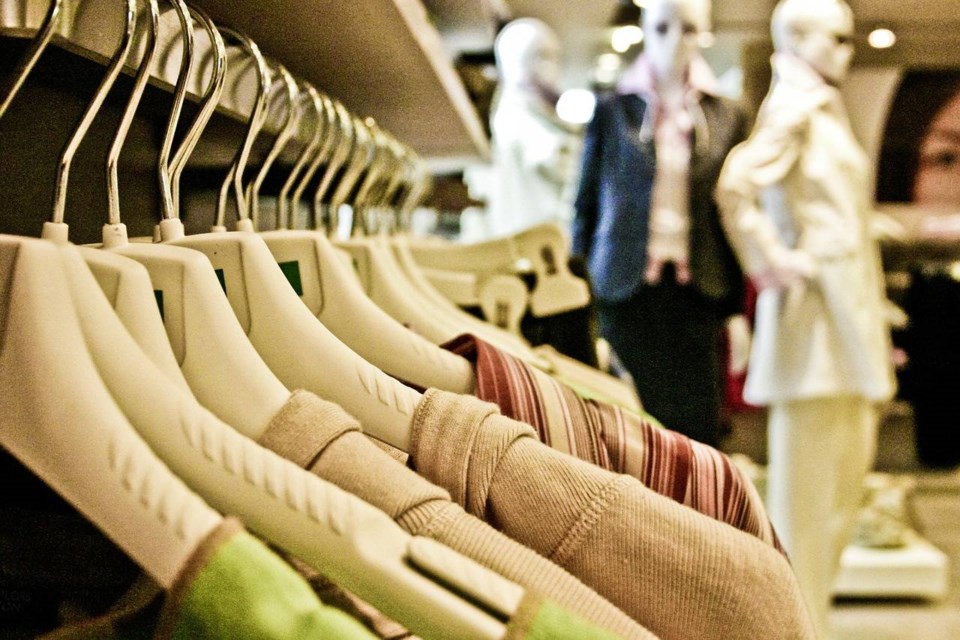By Audrey Throne
There has been much talk about our impact on the planet and how our choices affect our environment. With a steadily growing populace, a growing percentage of whom are better off and with a disposable income, the world is straining with the demand for goods. From food to fashion, more people are waking up to the fact that our lifestyle choices do have a big impact on the planet.
But how does fashion impact the planet?
One of the world's most intensively farmed products, cotton, is responsible for huge damage to the areas where it's grown. Water supplies are siphoned off to irrigate vast tracts of cotton plantations, and the remaining water system is then heavily polluted with chemicals and insecticides. In fact, by some estimates, the fashion industry is the world's second-biggest polluter after oil.
Our demand for up-to-date fashion means that we often buy clothing in bulk that we don't need, with obscene amounts of unworn fabrics ending up in the landfill. And with long supply chains, billions of tons of waste and heavy reliance on cheap labor, changing your fashion habits could have more of an impact than changing your eating or travel habits.
Sustainable fashion is the new vegan
As a result of the growing awareness of the impact of our fashion choices, the sustainable fashion industry has been growing rapidly. Although it can be hard knowing which of your high street clothes shops are sourcing their products with the planet in mind, a little bit of research can go a long way.
One way to tell if a company has sustainable credentials is through B Corp certification. A not-for-profit organization, B Corp enables companies from all industries to check their processes against B Corps sustainability checklist.
Certification isn't a requirement of sustainability, but it is a useful indicator. There are other pointers, such as sustainable companies tend to use natural and organic fibers or recycled plastics. They also limit the length of their supply chain and even encourage consumers to mend or repair their clothes rather than throw them away.
So if you want to wear your outfit, safe in the knowledge that you're minimizing your global impact, who should you be looking to? There are a few red flags for brands to stay away from. In general, if a brand offers disposable fashion for a low price, chances are they're not operating a sustainable model. Man-made fabrics also tend to be slow to degrade and highly polluting to manufacture, so these are best avoided in the name of sustainability.
Green brands
Some high street fashion brands have embraced the demand for sustainability and are leading the field. One of the best known is H&M/Hennes, who operates a recycled fabric scheme, encouraging users to return unused fabric and clothing to their stores. Despite being the very definition of fast fashion, H&M looks to be an eco-pioneer.
Among H&M's portfolio are other high street brands such as Cheap Monday, Other Stories, COS and Weekday. Another well-known sustainable fashion brand is Patagonia, the poster boy of green fashion. Or, for those looking for high-end sustainability, Stella McCartney is one of the best examples of haute couture in a nice shade of green.
But it's not all about the big labels. Increasingly, startups and new fashion labels are going straight for the environmental credentials. Take for example sustainable shoe company Baabuk, whose approach is offering both the product in a more sustainable material (in this case wool) and also minimizing the supply chain mileage.
So could this be the year you change your fashion habits, wearing sustainable wool shoes and organic cotton pants?
Shopping with the planet in mind
We've become accustomed to buying new clothes on a whim or stockpiling clothing items because they're on sale. Fashion and the clothing industry wants us to buy this season's new designs. But, like our food habits, our clothes-buying habits can be curbed and made more eco-friendly.

As well as choosing sustainable fashion brands, we should all be avoiding excessive consumption. Buy clothing only when you need it and avoid stockpiling those items as 'maybes.' We should also aim to repair clothing whenever possible and shop for second-hand items instead of buying new all the time.
Although we have a long way to go, with some small adjustments to our shopping habits, we can make a huge difference.
Audrey Throne is the mother of a 3-year-old and a professional blogger by choice. She is passionate about lifestyle, business, automotive, technology and management, and blogs frequently on these topics. Find her on Twitter: @audrey_throne.




